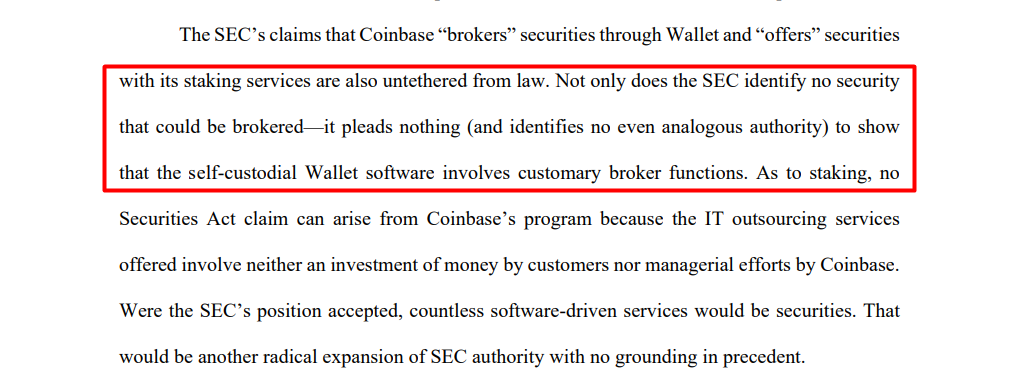Coinbase Criticizes SEC’s Jurisdiction And Definition Of Investment Contract
Key Points:
- Coinbase criticizes SEC’s accusations for exceeding its jurisdiction and argues that securities laws should only apply to transactions with ongoing contractual obligations related to a business enterprise.
- Coinbase asserts that the SEC’s proposed definition of an investment contract is inconsistent with statutory text and case law, and would give the SEC broad authority over investments without limits.
Coinbase criticizes SEC’s accusations again, stating they exceed jurisdiction. SEC’s definition of investment contract is inconsistent with law and lacks evidence. Coinbase argues for dismissal of Exchange Act claims.
The SEC’s authority is limited to securities transactions, specifically those involving “investment contracts.” In the case against Coinbase, the SEC argues that the transactions on the platform do not qualify as securities transactions because they do not involve ongoing contractual obligations related to a business enterprise.
According to the document, Coinbase asserts that the SEC’s definition of an investment contract is inconsistent with statutory text, case law, and the SEC’s own previous arguments. Coinbase maintains that an investment contract requires a contractual undertaking beyond the point of sale and a financial stake in a business.
Coinbase Criticizes SEC’s Definition Of Investment Contract
The SEC’s proposed definition would give them broad authority over investments without any limiting principle. Coinbase argues that Congress did not grant the SEC open-ended authority and that the SEC’s position would offend the separation-of-powers concerns.
Furthermore, Coinbase contends that the SEC’s claims regarding Coinbase brokering securities and offering securities through its staking services are unfounded. Coinbase asserts that the SEC fails to identify any security that could be brokered and provides no evidence that the self-custodial Wallet software involves customary broker functions.

Coinbase also argues that its staking program does not involve an investment of money by customers or managerial efforts by Coinbase, and therefore, does not give rise to a Securities Act claim.
Additionally, the exchange maintains that the SEC’s position would result in a radical expansion of SEC authority without basis in precedent. Coinbase concludes that the SEC’s conception of an investment contract is unsupported and that the Exchange Act claims should be dismissed.
DISCLAIMER: The Information on this website is provided as general market commentary and does not constitute investment advice. We encourage you to do your own research before investing.























